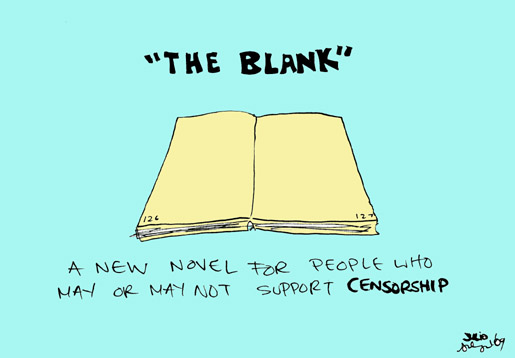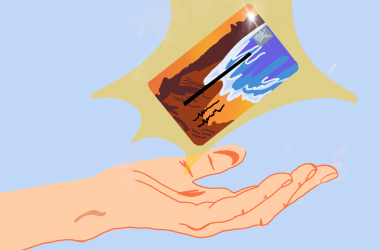What is the difference between censorship and keeping obscene material out of children’s hands? For years, many have debated this issue and few have been satisfied with the outcome.
While most agree that hateful and racist content should be regulated at the K-12 level, there is a fine line between protecting children and sheltering them. Should we not allow mature teenagers to visit the Museum of Tolerance because it contains racist writings and violent images?
Recently in Washington, English teacher John Foley tried to have Mark Twain’s “The Adventures of Huckleberry Finn” removed from Ridgefield High School’s curriculum. Foley claims that “novels that use the ‘N-word’ repeatedly need to go.” Is that necessarily true?
If you want to ban Huck Finn because of its racist dialogue, then other novels such as “To Kill a Mockingbird” and “Of Mice and Men” should be thrown out. In a Foley world, those classics would leave the classrooms quicker than an “offensive” novel at an Adolf Hitler book burning.
Racism is probably humanity’s greatest atrocity. It is shameful that we live in a world where the Ku Klux Klan exists, but we do. How can we properly teach children the dangers of racism if they aren’t exposed to its ugliness?
Books like “Huck Finn” were written to educate against the stereotypes that existed in the 1800’s and continue today. The repeated use of the “N-word” in Twain’s novel is meant to show how ignorant racism is, not to glorify it.
That’s why literature like Hitler’s “Mein Kampf,” a book full of racist propaganda, is not taught at high schools.
Foley also complains that students find Huck Finn to be “dull and plodding.” That is more of an indictment on our educational system that some students can’t appreciate classic literature.
Many students seem more interested in reading Facebook postings than the works of authors who exposed — but did not exploit — the cancer of racism.
Maybe students would be more affected if Facebook was censored for material that was deemed inappropriate. Well, it was.
The popular social networking site was recently under fire for deleting photos of nursing mothers. Facebook representatives explain that “exposing the nipple or areola violates its policies on obscene material.” Just as the pictures of the nursing mothers weren’t intended to titillate, neither was Twain’s use of the “N-word” in Huck Finn.
Foley said that “with few exceptions, all the black students in [his] classes over the years have appeared very uncomfortable” with the use of racist dialogue in Huck Finn. This is a valid argument, as many black students continue to feel the sting of racism.
On the other hand, maybe reading Huck Finn will make black students realize that racism is a learned behavior that can be broken. Twain wanted to show that racism is not an innate human quality; the uneducated Huck learned to love Jim when he got to see what a decent man he was. The novel’s lesson, while harsh in its dialogue, is one of hope and humanity.





Now why would Huck Finn, a fictional character with no education, cause an uproar using the N in a book word when rappers, real people with no education, dont? Seems a little off that hate speech and misogyny are permissible when perpatrated by minorities, but becomes an issue when it is in an old book? Jesse Jackson gets recorded calling Omana an N word and no one cared? Hypocrisy at its finest… this teacher craves publicity. Sickening!
Books are different than restaurants, Lundo. It is better to confront these issues instead of sheltering students from them, that’s the problem with education today.
How about just reading a different book? Does is have to be Huck Finn? You don’t like McDonald’s… Burger King is across the street.